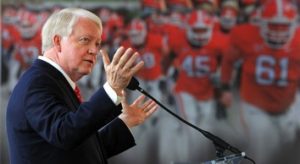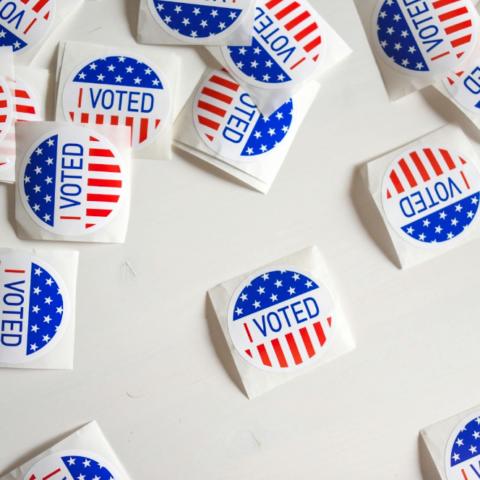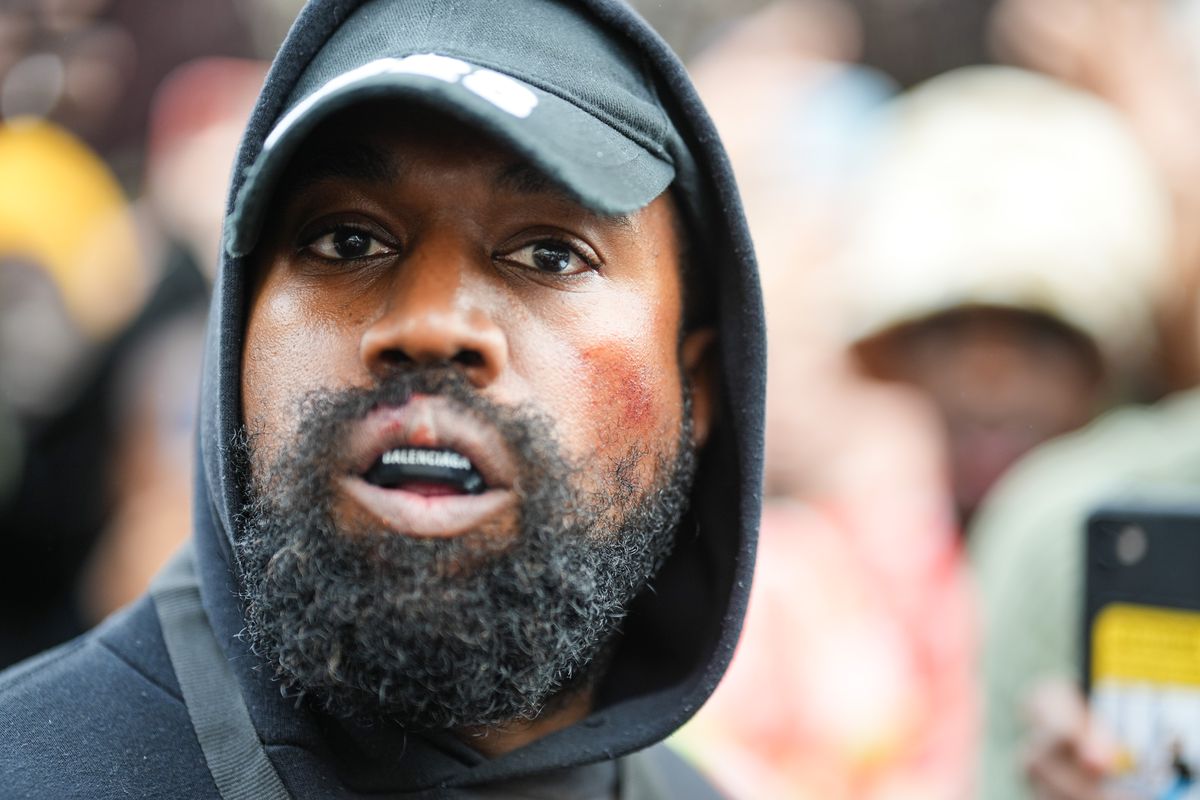By: Darrian Stacy
Contributor: Andrew Roberts
President Michael Adams has been President of the University of Georgia since 1997. Holding a Ph.D. from the Ohio State University as well as five honorary degrees, the president has accepted over 50 awards for higher education both personally and on behalf of the University. Under his leadership, the University has achieved its highest academic rankings in history, and has grown from 29,000 students to nearly 35,000. The University has also undergone over $1 billion in construction, and its endowment has more than tripled. Ahead of his scheduled retirement on June 30, 2013, President Adams graciously sat down with Georgia Political Review’s Darrian Stacy to discuss his time as President, the HOPE Scholarship, administrative policies, and the future of the University of Georgia.
How’s the transition going, and what are some of your feelings as your time as president comes to a close?
Well, I think it’s going well. Jere and I have known each other for 15 years. We’ve agreed that I’ll be president until June 30, and he’ll be president starting July 1. And yet, you know, we are working on a lot of things together, which we have while he’s been provost. We are trying to hire three or four deans; we’re in the final stages of hiring a head of the Peabody program; we’ve got a budget presentation to the Regents tomorrow; we still have March, April, May, and June Regents meetings to get through; we have a legislative session yet to deal with; and on anything that relates to fiscal year ‘13 I’ll probably take the lead, and on anything that relates to fiscal year ’14, which starts July 1, he’ll take the lead.
Were you allowed to have any choice in who the next president would be?
I had absolutely nothing to do with it. I was not a committee member, nobody asked my opinion, I didn’t volunteer my opinion, and I must say I think that that’s appropriate. I was on the chancellor search committee when Hank Huckabee, who also used to be a vice president here, was hired, but I purposely went to great lengths to stay out of the presidential search. I don’t think I had anything to add to that process.
Can you share with us your thoughts on Provost Morehead as the next president?
Well, I’ve worked with him for 15 years, [and] I’ve hired him for 4 different jobs. When I first knew him as a faculty member, he was made interim director of legal affairs, and then he was director of the Honors Program, and then he was vice president for instruction, and then he was provost, and he did all of those things well, and somebody must have thought so as well.
One thing GPR has been focused on lately is the sustainability of the HOPE Scholarship. There have been numerous proposals to change the program from switching it to a need-based program, to implementing a reimbursement program. What are your thoughts on the sustainability of HOPE?
I think it will be sustained. It may have to be adjusted as we go down the road, but look at this year–we have a little more money than we expected, so I’m going to assume the economy is not always going to be in the dredge that it has been in the last five years. We have worked with the administration to make some of the adjustments that have been made to keep it alive for everybody. I am not for means testing. I think if you do that the political support for it goes away. I guess I would give the legislature pretty high marks on this. It’s still the richest, or one of the richest, scholarship programs in the country. They have not done what some other states have done with lottery funding. They have not directed it to roads, or Medicaid, or prisons, or a myriad of other things that state government does. So I generally think we’ve done about as well as we can do up to this point, and I am hopeful that as the economy improves there will be more money, and therefore more flexibility in the program. I am generally an optimist. I have lived long enough that I don’t think things are always going to be the way they’ve been the last three or four years.
Is the University taking steps to keep down cost?
Where are we? We’re down about 600 employees from our top. We’re looking at every dime and every dollar on expenditures. We’re also trying to generate more revenue. You know it through tuition, but we are doing it in a lot of other ways as well that you may not know about. We’re raising a lot of money on the outside; that helps. We’ve increased our indirect costs off of research grants dramatically in the last five years; that has helped. We have ventured into some new areas like public health and engineering that I think will generate more research going forward and that is one of the theories behind that. So my theory has been, let’s not just work with one side of the equation. Let’s not just cut, but let’s also try to generate some more revenue along the way as well. And thankfully, as hard as it has been, for 16 budgets we’ve made the lines come together. I mean, that’s what part of the people in this building get paid to do, and I must say that it has probably been harder in the last three years. I got my doctorate forty years ago, which was way before you guys. I was twenty-four at the time, you do the math; I’ll be 65 next month. These have been the hardest three years to make the budgets balance that I have ever seen, particularly ‘11-’12 and ‘13. There’s no low hanging fruit left, so to speak. We’ve restricted travel, we’ve restricted international participation, [and] people can’t go to academic conferences. We’ve asked faculty to do more. We’ve asked everybody to do more, from cleaning the dorms, to sweeping the grounds, to whatever. So yes, we’ve done a lot of things to make [up on] both the revenue side and on the spending side. This is a pretty big enterprise, and we are down about $150 million in state support over the last four or five years. We’ve made up probably a third or 40 percent of that in tuition, but we had to get the rest of it through all of these other ways–some cuts, some revenue generation. If you were paying the full amount of what the state cuts have been, your [tuition] increase would have probably been twice what it has been. So, it’s been more than I wish it would have been, but it’s just the reality of what we’ve been dealing with right now.
Last semester you sent a letter to the Board of Regents asking permission to move forward in extending voluntary benefits to UGA employees who have domestic partnerships. How much progress has been made in regards to extending benefits for domestic partnerships for UGA employees, and do you think it’s a goal that can still be reached by the end of the year?
I don’t know. I sent the letter when I said I sent the letter. I’ve been told that they are not quite ready to respond, but what the timing is on that is I don’t know because it is out of my hands.
You cited an impressive list of accomplishments for the University in your State of the University address, but what do you hope to be remembered for?
I hope, first of all, to be remembered for student quality. That is something I’m proudest of. I still like the students; if I didn’t I’d be doing something else. You guys are pretty smart; you know when people care about you and when they don’t. I’ve always had good relations with the Student Government leadership, the Red & Black, the Arch Society, the athletes, the regular student on the
north quad, [and] all of the people I come into contact with. That’s why we are here every day. I hope I will be remembered as somebody who helped a lot of students. That is what I am proudest of. I hope the faculty thinks I have dealt with them uprightly and forthrightly. And I think the typical alumnus would say we made a lot of improvements both in academic quality in their degrees, and in the physical plant. So those are three or four things that I’m proud of, but it all begins and ends with the students.
Can you give a specific time when you had an interaction with a student that positively affected them and you?
I hardly go a day without seeing students. I’ve helped students with financial aid, admissions, in-state tuitions, jobs, I’ve helped them make career decisions, [and] I’ve worked with them on athletic draft decisions. You name it, from soup to nuts. I’ve taken students with me to the Capitol; I’ve taught every other year I’ve been here. So it’s just kind of in the DNA from that standpoint.
If you could change anything about your experience here what would it be?
I’m not the kind of person who spends much time looking in the rearview mirror; you know, the old song where the windshield is bigger than the rearview mirror is a good one. I try to look forward. I think I will leave the place in a better shape than I found it. I regret what we’ve not been able to do for faculty salaries over the last four or five years, if you are looking for something where I would like to say I would have liked to have done better that’s one. Some of that has been beyond my control, and maybe some of it we could have done better. I don’t leave here with very many regrets, I’ve done what I came to do, I feel good about what has happened, I don’t for a minute think that I’ve done it by myself. What I’m proudest of administratively are the people I’ve hired: the Tim Burgesses, the Tom Landrums, the Meg Amstutzes, and the deans and the vice presidents, in addition to Jere Morehead. It’s a heck of a talented group of people, and they are the ones who I think have really helped to move the enterprise forward.
Speaking of moving forward, where would you like to see Georgia 10 years or 20 years in the future?
Well, we’ve moved in the top 20, and I would like to see us move into the top 10 or 12. I think it’s realistic. I think there is a pretty strong base there. I think as we develop some of these schools that have been educating, have been created–the medical partnership, the College of Engineering, the College of Environment and Design, the College of Ecology, Public Health–I think most of those have 21st century employment opportunities attached to them. Not to mention the cores, arts, sciences, and business, the things we’ve been known for here for a very, very long time. We’ve been a good institution for a whole long period of time, and we have sort of built upon the people who have come before us. I am especially hopeful that the next president can take this thing to the next level.
And what’s next for President Adams?
After 40 years of getting up every day with a schedule and a folder with supporting material in it, I’m going to take a year off. I’m going to think, and read and write some, and then I’m going to come back some and teach a little political communications, a little higher ed. administration, and maybe work 30 or 40 hours a week and not 70. I’m going to spend a little time with my family [and] my three granddaughters, whom I haven’t seen very much. So I’m looking forward to a little more family time and a little more personal time going forward.
Of the three pillars of the Arch, wisdom, justice, moderation, which to you is the most important and why?
I think they are of the whole. I think the one we need the most right now is moderation. I’m troubled by the political stalemate in Washington, I’m troubled by the people dug in on the far right and far left. I know from the time I worked up there you get things done by negotiation and compromise, building bridges and relationships, which is how you get things done in life frankly. Rarely do we get everything we want about anything, and I think we’ve lost that sense of moderation in a whole range of areas–in politics, in lifestyle, sometimes in drink, and just a general approach to things. You can’t do without wise people, you can’t do without justice, but I think one of the areas where we are least doing what those pillars call for is the area of moderation.
Do you have any advice for college students?
Well you’ve heard it but I’ll tell you again. Follow your heart. Don’t worry so much about your employment like your parents want you to. Decide what it is that excites you, and I think the undergraduate level, if you learn to read widely, to think critically, to speak articulately, to write well, you can do anything in life. I think of how different the world is from when I taught my first class at Ohio State in 1972. Most of my class was dressed in army fatigues, the Vietnam War was going on, they all had long hair, and a fairly cynical view of the world. I look at students today and it’s night and day. Some good, some bad. There was an idealism of the youth of the ‘60s and ‘70s generation that I wish we had today. I think we worry too much about money and jobs and the next move. I’ve been very fortunate; I’ve never had to look for a job. I’ve been found by other people, and I think that once you get your foot in the door somewhere and you prove yourself, if you are doing what you love doing and it shows, and you do it well, people, then other opportunities will come.

